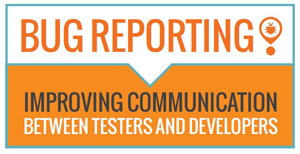Mobiles apps are integral to our lives. It’s no wonder, then, why so many people are looking to develop one of their own. However, when you are developing a mobile app, will it be a native or cross-platform development?
Here, we break down the pros and cons of each to help you decide with method is best for you:
Native Mobile App Development
Creating a mobile app through native tools can be difficult but rewarding at the same time. It requires specialized knowledge of that native programming languages. This isn’t knowledge everyone has, but it is worth knowing for several reasons.
Pros of Native Mobile App Development
Below are just some of the many advantages to native mobile app development that may make the cons (see those further down) worth putting up with.
- Better Performance
- Enhanced Security
- Greater Customization
- Greater User Experience
- Fewer Bugs
- Instant Updating
- Improved Scalability
Cons of Native Mobile App Development
There are many advantages to native mobile app development, but there are also some disadvantages. It will depend on many personal factors on whether the pros outweigh the cons. But as always, only you can make the final decision.
- Limited to no flexibility
- Expensive development
- Time-consuming development
- Lengthy downloading process
- Frequent upgrades are needed
So, do the pros outweigh the cons? It may depend on your own individual company. If you have the time and money to spend on native development, then it may be worth it. However, if time and money are limited, then native app development may be a luxury you can’t afford. In that case, you can turn to cross-platform development.
Cross-Platform Mobile App Development
Apps created through cross-platform development can perform on several platforms and devices, with a single codebase, all at the same time. In other words, you can have one app instead of two for Android and iOS.
Pros of Cross-Platform Mobile App Development
There may be several reasons why cross-platform mobile app development is superior to native development. It is often a better choice for companies who are limited on time and money. Here’s why:
- Low maintenance costs
- Reduced development costs
- Fast development process
- Seamless cloud integration
Cons of Cross-Platform Mobile App Development
The pros we listed above will likely seem compelling. However, there are also a few reasons why cross-platform development is not the right choice.
- More challenges with user experience
- Less security
- Limited tools available
- Some performance issues
Which type of development you choose will depend on your company and its needs. No matter which type you choose, though, you will need a quality assurance testing team by your side to ensure your app is near flawless. Contact Beta Breakers today to learn more.

 With Experience in Quality Assurance & Testing Desktop Software, Mobile Apps, Websites & Web Applications for Nearly 30 Years, Beta Breakers has become the Premier Software Quality Assurance Labs and Application-Testing Provider -
With Experience in Quality Assurance & Testing Desktop Software, Mobile Apps, Websites & Web Applications for Nearly 30 Years, Beta Breakers has become the Premier Software Quality Assurance Labs and Application-Testing Provider - 


Leave a Reply